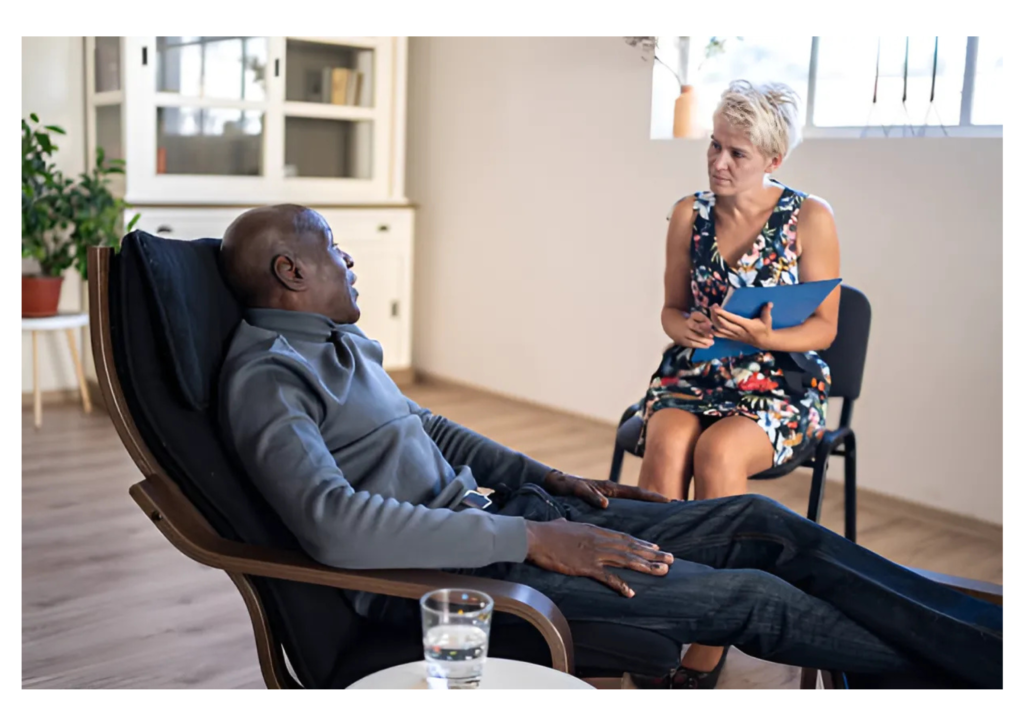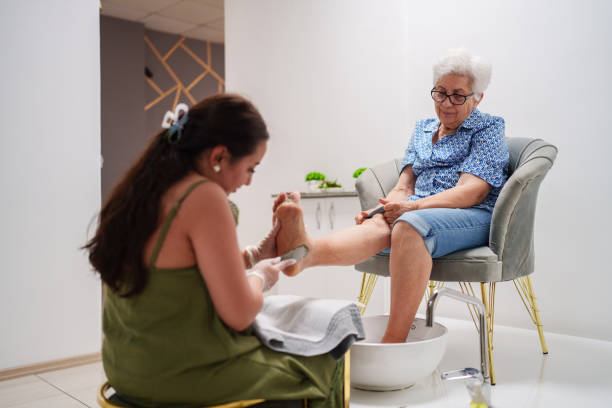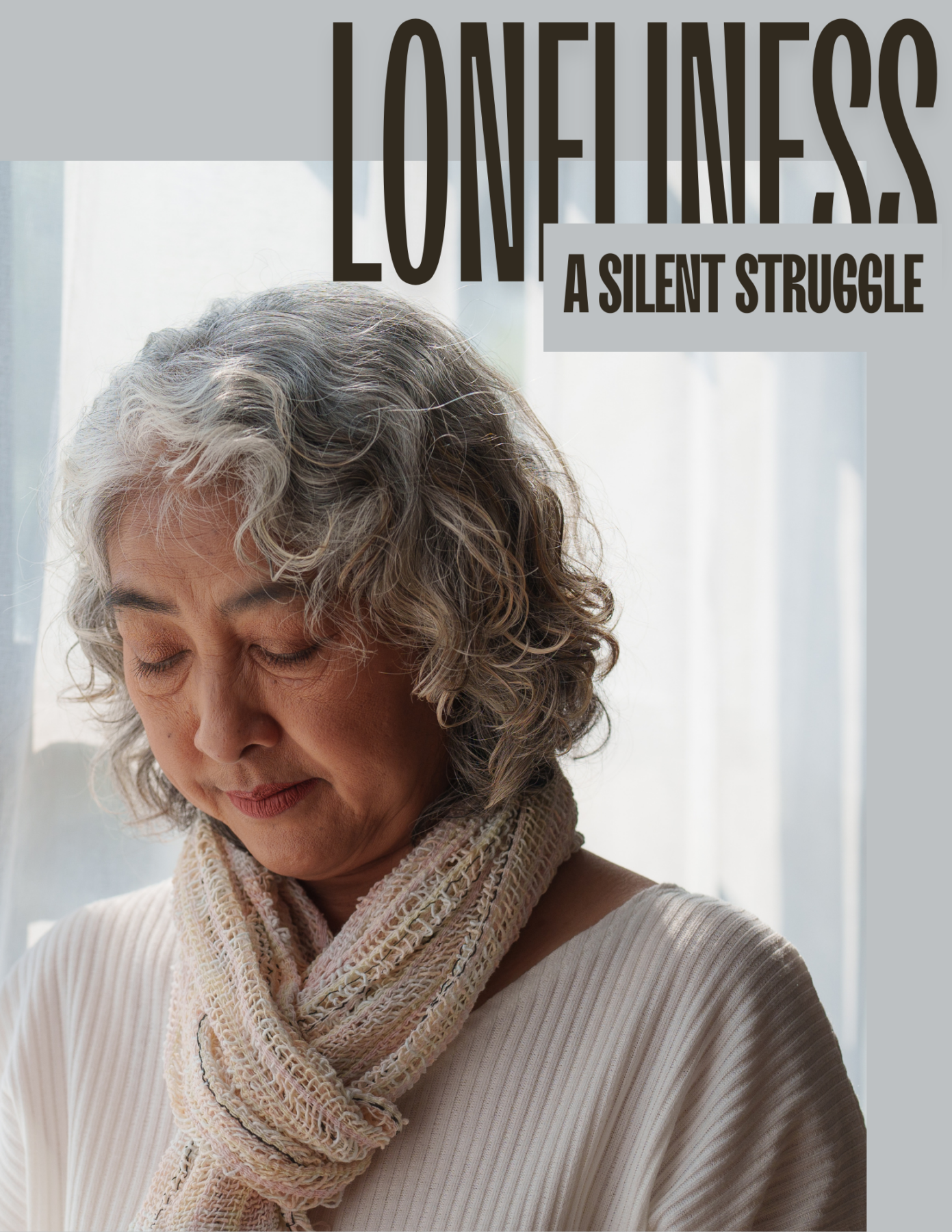Post-Traumatic Stress Disorder (PTSD) affects people of all ages, including seniors. As a caregiver, you play a critical role in identifying signs of PTSD in seniors, helping them cope, and ensuring they feel comfortable seeking support. Continue reading and we will guide you on how to identify the signs of PTSD, how to provide compassionate care, and how to handle episodes when they arise.
PTSD is a mental health condition triggered by traumatic events, and it doesn’t discriminate by age. Seniors may experience PTSD from events that occurred earlier in life or more recently, such as losing a spouse, military combat, or even hospitalization. PTSD in seniors can sometimes go undiagnosed because they may not recognize the symptoms or may feel reluctant to seek help.
Signs of PTSD in Seniors
- Flashbacks and nightmares – Recurrent memories of traumatic events.
- Avoidance – Avoiding places, people, or activities that remind them of the trauma.
- Increased anxiety or jumpiness – Easily startled or hypervigilant.
- Mood changes – Irritability, depression, or emotional numbness.
- Physical symptoms – Difficulty sleeping, chronic pain, or gastrointestinal issues.

If you notice any of these signs in a senior, they could be experiencing PTSD. However, it’s important to approach the subject with care and understanding.
How You Can Help Seniors with PTSD
As a caregiver, offering help to a senior with PTSD starts with empathy and open communication. Here are some strategies to consider:
Create a Safe Environment
Make the senior feel comfortable by ensuring they have a calm and safe space. Minimize loud noises and avoid sudden changes in their routine. Seniors with PTSD need stability and predictability.-
Encourage Open Conversation
Let the senior know they can talk about their feelings and experiences without judgment. Validate their emotions and assure them that it’s okay to ask for help. This opens the door for them to share more about their trauma when they feel ready. -
Provide Emotional Support
Be patient and attentive. Listen actively when the senior speaks about their fears or memories, and don’t push them to open up if they’re not ready. Offer reassurance that their emotions are valid and that it’s natural to feel overwhelmed at times. -
Connect Them with Professional Help
Suggest therapy or counseling if the senior is open to it. Professional mental health experts can offer tools to help them process their trauma. You can also suggest support groups, where they can meet others with similar experiences.

How Seniors Can Ask for Help if They Have Undiagnosed PTSD

Seniors may not realize they have PTSD or may feel reluctant to ask for help due to stigma. It’s essential to create a supportive environment where they feel comfortable seeking assistance.
Normalize Seeking Help
Let the senior know that many people, including other seniors, experience PTSD. Assure them that seeking help is a strength, not a weakness. Share stories or examples of others who have successfully managed PTSD with therapy or counseling.Provide Simple Resources
Share information about mental health services in their area, such as articles about PTSD and seniors from credible resources, counseling centers or hotlines specifically for seniors. If they’re comfortable, offer to accompany them to their first appointment or connect them with a healthcare professional who can explain the process.

Helping Seniors Realize It's Okay to Receive Help
Seniors, especially those from older generations, may be hesitant to accept help for mental health concerns. They might believe that asking for help is a sign of weakness or that they need to deal with their trauma privately. As a caregiver, you can help shift this mindset by:
Offering Gentle Encouragement
Avoid forcing the conversation. Instead, offer gentle reminders that it’s okay to seek help and that many people find relief by talking to professionals.Emphasizing the Benefits of Care
Explain how receiving help can improve their overall well-being, leading to better sleep, reduced anxiety, and a more fulfilling life. Focus on the positive outcomes rather than the condition itself.Reassuring Them They Are Not Alone
Help them understand that they are not alone in their experience. PTSD is common, and treatment options are available that can help them feel better.
What to Do During a PTSD Episode
PTSD episodes can be overwhelming, both for the senior experiencing them and for caregivers. If a senior is having a PTSD episode, here’s what you can do:
Stay Calm
Your calm presence can help de-escalate the situation. Speak in a soft, reassuring voice and avoid making any sudden movements that could further startle them.Ground Them in the Present
Help the senior reconnect with their surroundings by using grounding techniques. For example, ask them to focus on their breathing or describe the objects around them. Gently remind them that they are safe and that the trauma is in the past.Provide Comfort
If they are comfortable with physical touch, a light hand on the shoulder or holding their hand can provide reassurance. Otherwise, offer verbal comfort by repeating that they are not in danger.Give Them Space if Needed
Some seniors may need physical or emotional space during an episode. Allow them to sit in a quiet room or step away for a moment if they prefer. Keep an eye on them from a distance to ensure their safety.
For more information on PTSD in seniors, check out resources like the National Institute of Mental Health or PTSD Alliance for further guidance on providing compassionate care. By ensuring that you’re patient and understanding, you can help seniors with PTSD regain peace and comfort in their daily lives.




